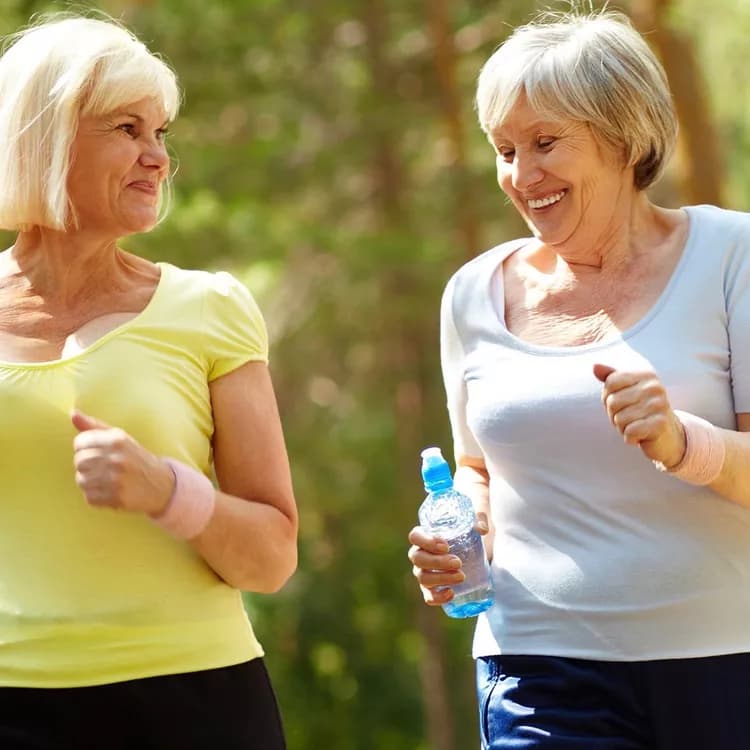
Group Activities Reduced Depressive Symptoms Among Older People With Dementia
Both a high-intensity functional exercise programme and a non-exercise group activity, conducted among older care facility residents with dementia, reduced high levels of depressive symptoms. However, exercise had no superior effect on depression, according to a dissertation from Umeå University.
"Unfortunately, depression is common among older people, especially in people with dementia," says Gustaf Boström, doctoral student at the Department of Community Medicine and Rehabilitation and author of the dissertation. "Treatment with antidepressant drugs is often ineffective in older people and people with dementia. In addition, the risk of drug-related side effects increases with higher age and poor health, which is yet another reason to find other treatments."
In his dissertation, Gustaf Boström investigated whether 45 minutes of high-intensity exercise, every other weekday for four months, had a better effect on depressive symptoms than a seated group activity, performed with the same duration and frequency, in older people with dementia. The exercise programme included balance- and leg strengthening exercises that mimicked everyday movements, e.g. rising up from a chair, step up and down from a step board, or walking on a path with obstacles. Participants in the seated group conversed, sang, or listened to readings, all with varying themes such as season, wild animals or well-known authors. There was no difference in effect between activities, but high levels of depressive symptoms were reduced in both groups.
"Previous studies have shown that people with dementia at residential care facilities have few social interactions, which can negatively affect a person's well-being. The positive effects could therefore be the results of social interactions in these kinds of group activities. However, more research is needed to confirm this," says Gustaf Boström.
Gustaf Boström also investigated if there is a connection between impaired balance, general dependency in activities of daily living, and depression in older age. The study involved 392 participants and results suggest that there is a correlation between impaired balance and depressive symptoms. Regarding dependency in activities of daily living, two specific tasks were related to increases in depressive symptoms -- dependency in transfer and dressing.
"The link between impaired balance, dependency in transfer or dressing, and depression is an important finding and may be the subject of future studies focusing on prevention or treatment of depression among people in older age," says Gustaf Boström.
Finally, Gustaf Boström analysed if people with dementia or people over the age of 85 had an increased risk of death with ongoing treatment with antidepressants. Previous studies have shown an increased risk of death with antidepressant use in older people with depression. For very old people or people with dementia, who are expected to have a higher risk of drug-related side effects, the knowledge of potential mortality risk associated with antidepressant use is limited. The study showed no significantly increased risk in these groups, but did find gender differences. Among very old people, women had a higher mortality risk with antidepressant use in comparison to men. Among people with dementia, antidepressant use was associated with a reduced mortality risk in men. These differences and the potential risk of initial treatment need to be investigated further in future studies.
The above post is reprinted from materials provided by Umeå universitet.Note: Materials may be edited for content and length.
Disclaimer: DoveMed is not responsible for the adapted accuracy of news releases posted to DoveMed by contributing universities and institutions.
Related Articles
Test Your Knowledge
Asked by users
Related Centers
Related Specialties
Related Physicians
Related Procedures
Related Resources
Join DoveHubs
and connect with fellow professionals

0 Comments
Please log in to post a comment.